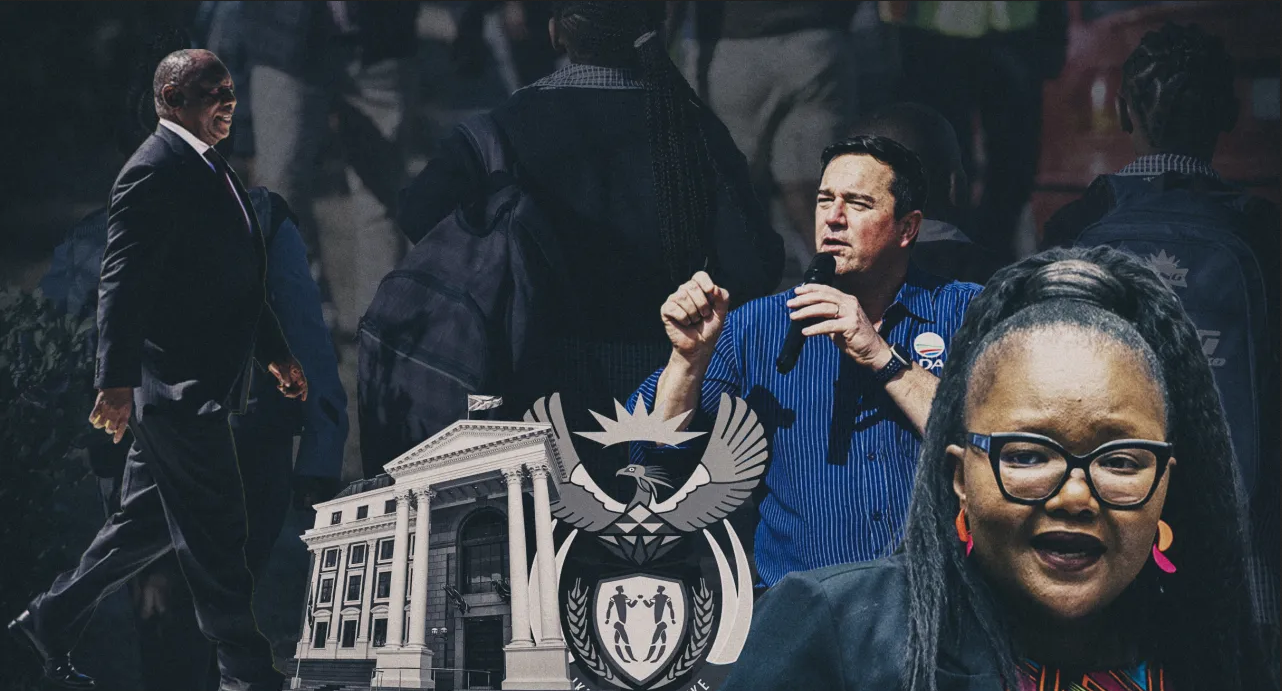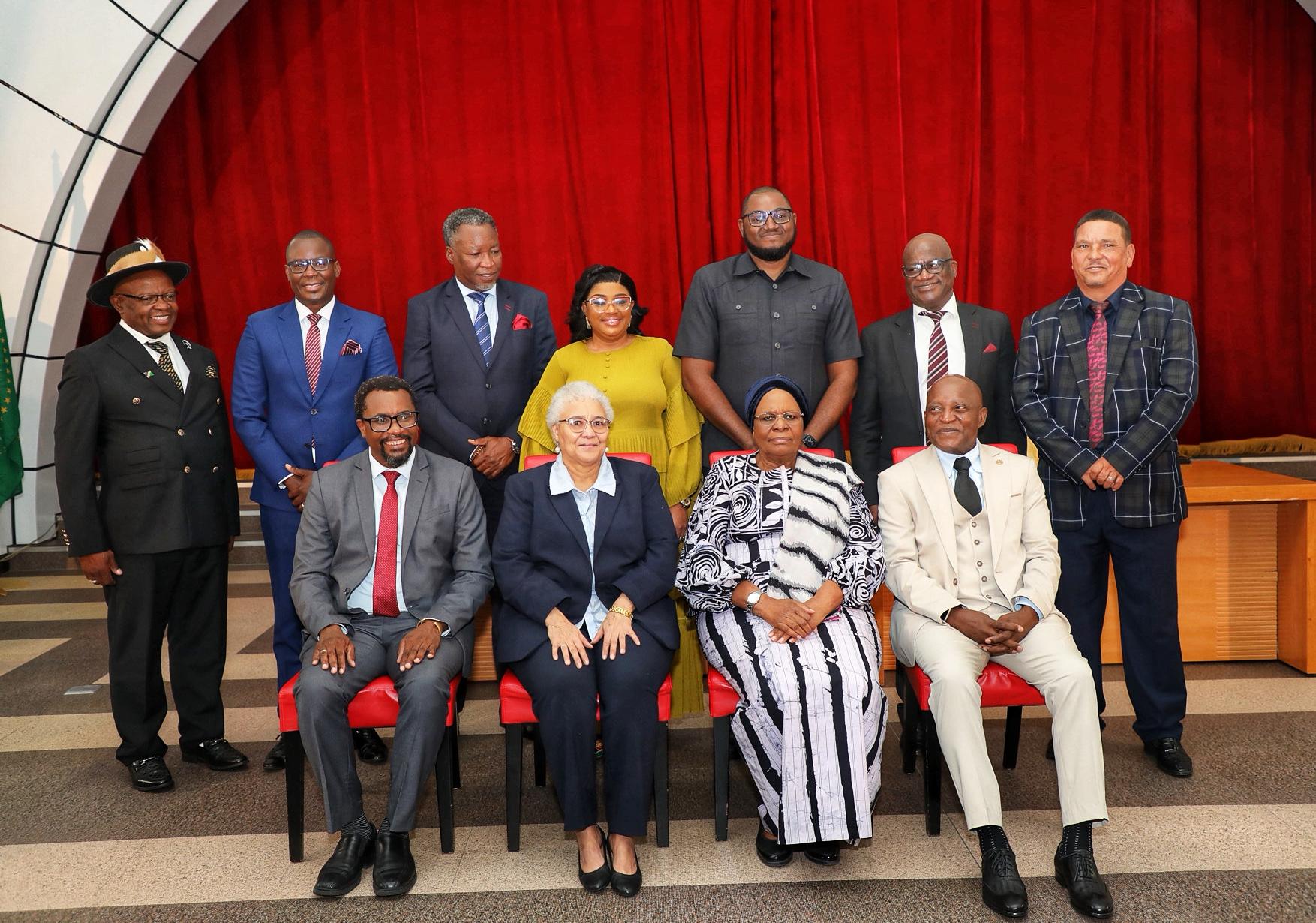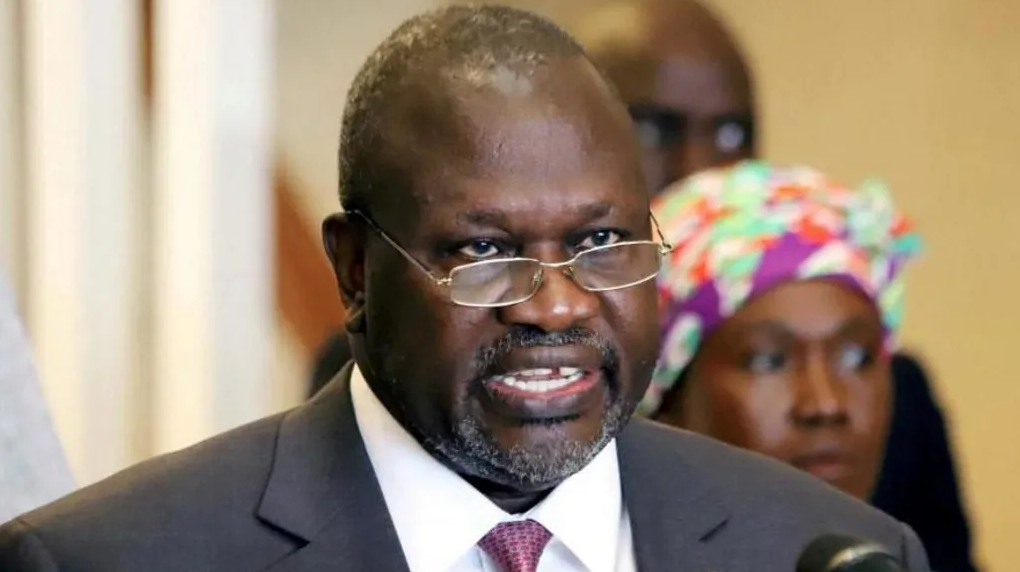The announcement that President Cyril Ramaphosa will sign the Basic Education Laws Amendment Bill into law on Friday will provide the first big test of the national coalition government. In particular, it forces the DA to make a difficult decision about whether to stay in the coalition. It also poses a risk for the ANC.
On Wednesday, the Presidency announced that President Cyril Ramaphosa would sign the Basic Education Laws Amendment (Bela) Bill into law at a public ceremony at the Union Buildings in Pretoria on Friday.
The reaction from the DA, which has opposed the Bill, was immediate.
Its leader, John Steenhuisen, said he was seeking an urgent meeting with the President to discuss this.
The party’s spokesperson, Willie Aucamp, told Radio 702’s Midday Report that the President was “putting a knife to the throat of the GNU” through this action.
For the DA, the risk is clear. Its constituency opposes parts of the Bela Bill and it will suffer a significant cost if it is seen as allowing it to be passed. Also, because this concerns education, it will provoke an intense reaction from those who oppose the changes.
The fact that Ramaphosa has decided to sign the Bill into law publicly is politically significant.
The last signing ceremony Ramaphosa held in public was when he signed the NHI Bill into law. This was just before the elections and was aimed at winning voters for the ANC.
Getting back to Aucamp, he may have, perhaps unwittingly, described his party’s dilemma rather neatly.
He said “the GNU” “must be protected at all costs”. This has been the line spun by the DA and elements of the ANC (including Ramaphosa) since the coalition government was formed.
For the DA then to leave the coalition would suggest that it was not worth protecting “at all costs” and that signing the Bela Bill into law was too high a price to protect “the GNU”.
But for the DA to leave the coalition now, particularly after Steenhuisen and other DA leaders spent so much time and effort convincing their members they were right to join it, would carry a cost.
It is not certain what would happen if the DA did pull out. To pass any laws, the ANC would need support from parties currently in opposition. If this led to the EFF or MK playing a bigger role in our politics, perhaps in government, the DA’s constituency could well blame it for allowing this to happen.
Yet if the DA remains in the coalition and Ramaphosa signs the Bill into law, then it will appear that the DA is toothless. This could define the party’s relationship with the ANC for the rest of this term, with the DA essentially having no power in the national government.
An impossible position
Caught in the centre of this is the current minister of basic education, the DA’s Siviwe Gwarube. She may find herself in an impossible position.
Can she implement a law her party disagrees with? Or could she, publicly, say that she will only implement parts of the law that she does not disagree with?
Even that would be fruitless. Because education is a provincial competence, MECs and the provincial departments have the power to implement the law anyway. She would be powerless to stop this.
Another part of what could be a calibrated response from the DA would be for her to resign in protest at the signing of the Bill. She could take a principled position and say she will not head a department implementing a law she disagrees with.
However, that can also reveal the DA’s weakness — that it cannot afford to bring down the government and thus is simply giving up what should be an important position.
Another calibrated option could be for the DA to challenge the new law in court, which would also reveal how fragile the coalition is.
While a party in the government taking another party in the government to court would look absurd, it would not be the most absurd occurrence in our politics in recent times.
There is also a risk for the ANC.
Second thoughts
If the DA were to pull out, other parties could follow suit.
Some parties or their leaders might already be having second thoughts about joining the coalition and this would provide the perfect excuse to withdraw.
In short, the ANC could find that by tugging a small strand the whole ball of wool unravels.
Also, it could sign the Bill, only to have it struck down in the courts, which would open the party to criticism that it rushed through an unconstitutional Bill.
In the short term, Ramaphosa may be doing this to remind his allies and some in the ANC that they are still in charge. Cosatu has publicly supported his move and it will surely be joined by others.
Considering that the SA Communist Party has consistently criticised the ANC’s decision to work with the DA, this may be an important demonstration for Ramaphosa. He would be reminding them that he — and thus they — still has significant power and is not afraid to use it.
Within all of this is another principle that risks being obscured by what will be a huge amount of noise in the next few weeks.
One of the reasons this places so much pressure on the DA is that the Bela Bill is the result of the work of the previous Parliament. It is not clear that this current Parliament, elected by voters at the end of May, would vote in favour of it.
If Ramaphosa believes so strongly that the Bill is correct and must become law, why did he not sign it before the mandate of the previous Parliament expired? And can he say that the Parliament elected in 2019 has more legitimacy than the Parliament elected four months ago?
This raises the need for a change that would prevent this kind of manoeuvre from being used in the future.
The formation of the coalition government was seen as possibly introducing a new form of politics, one that would be quieter with fewer surprises than we have seen over the past decade.
This move by Ramaphosa, testing the DA in this way, shows that our politics still has the power to surprise — and probably will have for some time to come.
Stay informed with The Namibian – your source for credible journalism. Get in-depth reporting and opinions for
only N$85 a month. Invest in journalism, invest in democracy –
Subscribe Now!










